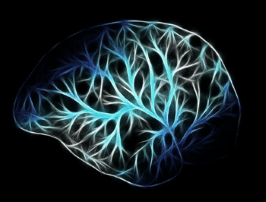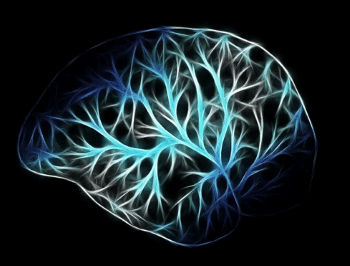What Happens In Our Mind While We Sleep? Check Out These Cool Facts


You live in a time where people are getting less and less sleep daily. It is common for people to prioritize work and study, maximizing the hours they have in the day, and forgetting about sleep. However, doing so can have a detrimental impact on your health. Here is what happens to your mind and brain when you are asleep, and why you shouldn’t be so quick to skip out on the bed rest to pull that all-nighter.
Sleep Stages
As you sleep, your brain will go through several sleep stages. These are broken down into four stages of non-REM sleep, and another stage where rapid eye movement takes place. Throughout the night, you will typically go through the different stages about four or five times, cycling through them on a typical 8 hours of rest. The initial stage is an extremely light sleep stage where you start to drift off to sleep. This stage is where you begin to enter a more relaxed state, and your eye movements start to decrease. Keep in mind that the initial stage is rather short, and can easily be interrupted, snapping you out of your sleep cycle with external factors like noises, movements, or other wakeful triggers. After about ten to twenty minutes, you will enter the next stage. The second stage is still a light stage of sleep, and waking from this state won’t lead to feelings of fatigue. If you are trying to nap in order to regain some energy, this is the ideal time to wake up. After the second stage, the following stages are a deeper sleep. This is where your body will benefit most in terms of fatigue and recovery. The downside is that if you interrupt your sleep during one of these stages, you will feel tired upon waking and won’t feel rested.
Staying Awake Is Tiring
Throughout the day, your body and mind are constantly working, processing information, and trying to link all that information to make sense of it all through connections. Your brain is constantly sending your body signals to function, even when you aren’t giving it a second thought. This all takes a toll on you. In the morning when you wake up, your energy will typically be at its peak or highest, taking into consideration the amount of rest you got the night before. Throughout the day, you will get more tired, especially at certain times when your body is telling you it needs a break. The resources from www.puffy.com/blogs/wellness/sleep-calculator-want-to-know-the-best-time-to-sleep-wake-up provide indicators and information regarding when the best time to sleep is, which you should find helpful. Your fatigue will vary depending on your level of activity, whether that is physically demanding tasks and activities like exercise, or mentally engaging activities like studying or working. As the day progresses, your functioning and productivity will decrease, and you will need to rest.
Changes In The Brain
Your brain will see the most benefit during REM sleep, the last stage of the sleep cycle. This is the period where you dream. During this time, your brain recalls information and connects facts. You will also develop your connections throughout the day attached to things like memory or events, leading to becoming a fully developed person that understands their emotions as well as developing your creativity as well. Not only is this critical for short-term memory development, but this also facilitates long-term memory as well. In addition to creating informational links and the importance of sleep on how you think, getting enough rest also impacts the physical aspect of your brain as well. As you get more sleep, you will remove the neurotoxins in your brain, things that contribute negatively to your mental health in such ways as Alzheimer’s and dementia. As you sleep, your systems open up, allowing for toxins to be washed away. Sleeping translates to an increase in the blood flow of your muscles and organs, and your brain is no different. You essentially want to get as much sleep as possible to ensure that you are able to think clearly, as well as have your brain communicate to the other organs and muscles in your body.
Physical Translation
As you sleep, your physical body and functioning will also be impacted. The signals in your brain will tell your body that it is okay to rest and operate at a lower level. Because you are not physically active, your heart rate will decrease, your muscles relax more, and your breathing will slow down as well. These are all-natural, as you are in a more relaxed state and do not need the level of functioning you do when you are awake. This allows your body to recover from the day before, especially if it has been especially taxing through exercise and various activities, allowing you to become stronger and your muscles and body to grow. It is important that you get enough sleep during the night to ensure that your body not only functions as you age, but your brain remains physically healthy in the long term as well. Any physical deficiency in the brain will quickly translate to decreased cognitive functioning.

Lack Of Sleep
A bad night of sleep can have significant detrimental implications on you and your brain. Without the rest you need to restore and replenish, you will suffer from issues predicated on attention problems, cognition, and recollection problems. This means that you will not be able to function optimally on a bad night’s sleep at school, at work, or on the job. Some issues with a lack of sleep also translate to mood disorders and depression. Those that have insomnia or struggle sleeping on a more consistent basis, unfortunately, are more likely to have issues with their day-to-day function when it comes to memory and recall. However, there are ways to combat the lack of sleep and plenty of resources dedicated to aiding your attempt to gain more rest.
Many people are not getting the sleep they need in order to properly function on a day to day basis. It is important that you understand the importance of sleep as it applies to your long-term health, as well as your daily functioning. Sleeping is one of the best things you can do for your brain’s health, so make sure to get enough rest.





